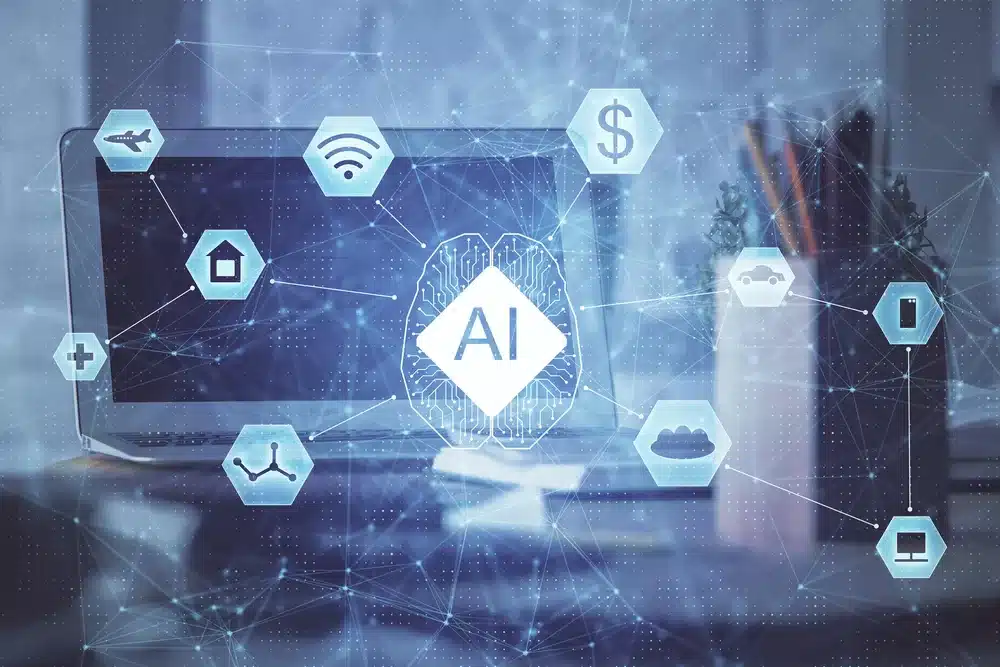
How AI in SEO is Changing SEO in 2025 and Beyond
What Businesses Need to Know
If you’ve been paying even a sliver of attention to the SEO world lately, you’ve probably heard the buzz about artificial intelligence (AI) reshaping the way we optimize for search engines. And while some of it is just noise, the reality is that AI isn’t just a passing trend—it’s fundamentally altering how businesses rank online, how search results are delivered, and how users interact with content.
So, what does this mean for your business? Should you embrace AI-powered SEO strategies, or is this just another case of hype over substance?
Let’s cut through the confusion and explore how AI is changing SEO in 2025 and, more importantly, how you can leverage it to stay ahead.
AI’s Evolution in SEO: More Than Just a Trend
SEO has always been a moving target. What worked a year ago might not work today, and what works now could be obsolete in six months. AI is accelerating this evolution, forcing search marketers to rethink their strategies faster than ever before.
Gone are the days of simple keyword stuffing and backlink spamming. Google’s algorithms have become more sophisticated, using machine learning and natural language processing to understand search intent, analyze content quality, and personalize search results.
With AI-driven search, ranking is no longer just about who has the most backlinks or the most optimized meta tags—it’s about who provides the best possible experience for users. And that means businesses need to step up their game.
The Rise of AI-Powered Search Engines
Google has been integrating AI into its search algorithms for years, with major milestones like:
- RankBrain (2015), which introduced machine learning to interpret search queries
- BERT (2019), which helped Google better understand the nuances of natural language
- MUM (2021), a multimodal AI that processes text, images, and even video to improve search results
- Search Generative Experience (SGE) (2023-2024), an AI-driven search experience designed to provide instant answers using conversational AI
Fast forward to 2025, and we’re seeing even more advanced AI models shaping the way search engines work. Google’s AI Overviews, for example, are pushing traditional organic results lower on the page, making SEO even more competitive.
And it’s not just Google. Bing, You.com, and other AI-first search engines are experimenting with conversational search, meaning users will interact with search results more like they would with a chatbot.
How This Impacts Your SEO Strategy
If AI is deciding what content gets surfaced, the rules of SEO are shifting. This means:
- Content must be user-first. Google’s AI prioritizes content that genuinely helps users, rather than just trying to game the system.
- Keyword strategy is evolving. AI doesn’t just look for exact-match keywords—it understands context. This means keyword stuffing is dead, and semantic SEO is key.
- Structured data is more important than ever. AI thrives on well-organized information, so implementing schema markup and structured data can improve visibility.
AI-Generated Content: A Blessing or a Curse?
Let’s talk about AI-generated content. Everyone from solopreneurs to Fortune 500 companies is experimenting with AI writing tools to pump out blog posts, product descriptions, and even landing pages.
It’s tempting—after all, AI can generate thousands of words in seconds. But here’s the reality:
- AI-generated content, when left unchecked, often sounds robotic and lacks authenticity.
- Google has made it clear that AI content must meet quality standards to rank well.
- Over-reliance on AI can lead to duplicate, low-value content that hurts SEO.
That said, AI can be a powerful tool if used strategically. Instead of replacing human writers, AI should be used as a supplement—to brainstorm ideas, improve outlines, or refine content. The best results come from human oversight combined with AI efficiency.
AI and Local SEO: A Game-Changer for Small Businesses
For small businesses that rely on local customers, AI-powered local SEO tools are revolutionizing the game. Google’s AI is now better at understanding local search intent, meaning it can connect users with businesses in their immediate area faster than ever.
Here’s how AI is shaking up local SEO:
- Automated Google Business Profile (GBP) optimizations allow AI tools to analyze your profile and suggest updates that can improve rankings
- Voice search optimization is becoming more important, as AI-driven voice assistants like Siri and Alexa are changing how people search for local businesses
- AI-powered review analysis is helping Google detect fake reviews and highlight authentic business feedback
If you’re a local business owner, the key takeaway is this: your online presence must be stronger than ever, especially your Google Business Profile and local citations. AI is raising the bar, and businesses that don’t keep up will lose visibility.
AI for Technical SEO: Automating the Tedious Stuff
One of the biggest benefits of AI in SEO is that it can handle the technical headaches for you.
AI-powered SEO tools can:
- Detect and fix broken links before they impact rankings
- Identify duplicate content and recommend fixes
- Analyze site speed and performance to improve Core Web Vitals
- Automatically generate schema markup for better visibility in search results
If you’ve ever felt overwhelmed by the technical side of SEO, AI is making it easier than ever to stay on top of things.
The Future of AI in SEO: What’s Next?
AI in SEO is just getting started. Over the next few years, expect to see:
- More personalized search experiences, with AI tailoring search results based on users’ preferences
- Increased use of AI-driven content moderation, as Google refines its ability to detect spam and low-quality AI-generated content
- Hyper-intelligent chatbots integrated into search, making AI search assistants more interactive and dynamic
- AI-powered voice and visual search dominance, requiring businesses to optimize for both voice and image-based search queries
Should You Be Worried About AI in SEO?
AI is not here to kill SEO—it’s here to make it smarter. Businesses that adapt will thrive, while those that resist change may struggle.
If you want to stay ahead in this new AI-driven SEO landscape, focus on:
- Creating high-quality, human-first content
- Leveraging AI tools to enhance—not replace—your SEO strategy
- Keeping up with Google’s AI-driven updates and adapting accordingly
- Investing in expert SEO services that align with AI’s evolution
At Virtual Surge, we don’t just keep up with AI-driven SEO changes—we anticipate them. Our job is to make sure your business isn’t just surviving in this new search landscape but thriving.
Want to see how AI-powered SEO can work for your business? Let’s talk.
